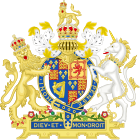Adventurers' Act

|
|
| Long title | An Act for the speedy and effectuall reducing of the Rebells in his Majesties Kingdome of Ireland to theire due obedience to his Majesty & the Crowne of England. |
|---|---|
| Dates | |
| Royal assent | 19 March 1642 |
| Commencement | 19 March 1642 |
| Repealed | 23 May 1950 |
| Other legislation | |
| Repealed by | Statute Law Revision Act 1950 |
|
Status: Repealed
|
|
The Adventurers' Act is an Act of the Parliament of England, with the long title "An Act for the speedy and effectual reducing of the rebels in His Majesty's Kingdom of Ireland".
The Irish Rebellion of 1641 had broken out five months earlier, and the Act was designed to pay the army needed to subdue the rebellion by using borrowed money. Repayment would come from confiscating the rebels' lands and selling them.
It was passed by the Long Parliament on 19 March 1642 as a way of raising funds to suppress the Irish Rebellion of 1641. The Act invited members of the public to invest £200 for which they would receive 1000 ac (400 ha) of lands that would be confiscated from rebels in Ireland. 2,500,000 ac (1,000,000 ha) of Irish land were set aside by the English Government for this purpose. The entire country of Ireland is roughly 20,000,000 ac (8,442,009 ha).
The enactment was done at the request of King Charles in the House of Lords, joined by the Commons, and was unanimously accepted, without any debate. The Bill had been placed before the Houses for inspection but was not formally read into the record. The title of the Act – "An Act for the speedy and effectual reducing of the Rebels, in His Majesty's Kingdom of Ireland, to their due Obedience to His Majesty, and the Crown of England" – was read out to Parliament, followed by the statement: "le roy le veult"
The "Adventurers" were so called because they were risking their money at a time when the Crown had just had to pay for the Bishops' Wars in 1639-40. "Reducing" the rebels meant leading them back (Latin: reducere) to the legal concept of the "King's Peace". King Charles could not subsequently enforce the Act, but it was realised by his political opponents following the Cromwellian conquest of Ireland in 1649-53, and formed the main legal basis for the contentious Act for the Settlement of Ireland 1652.
...
Wikipedia
